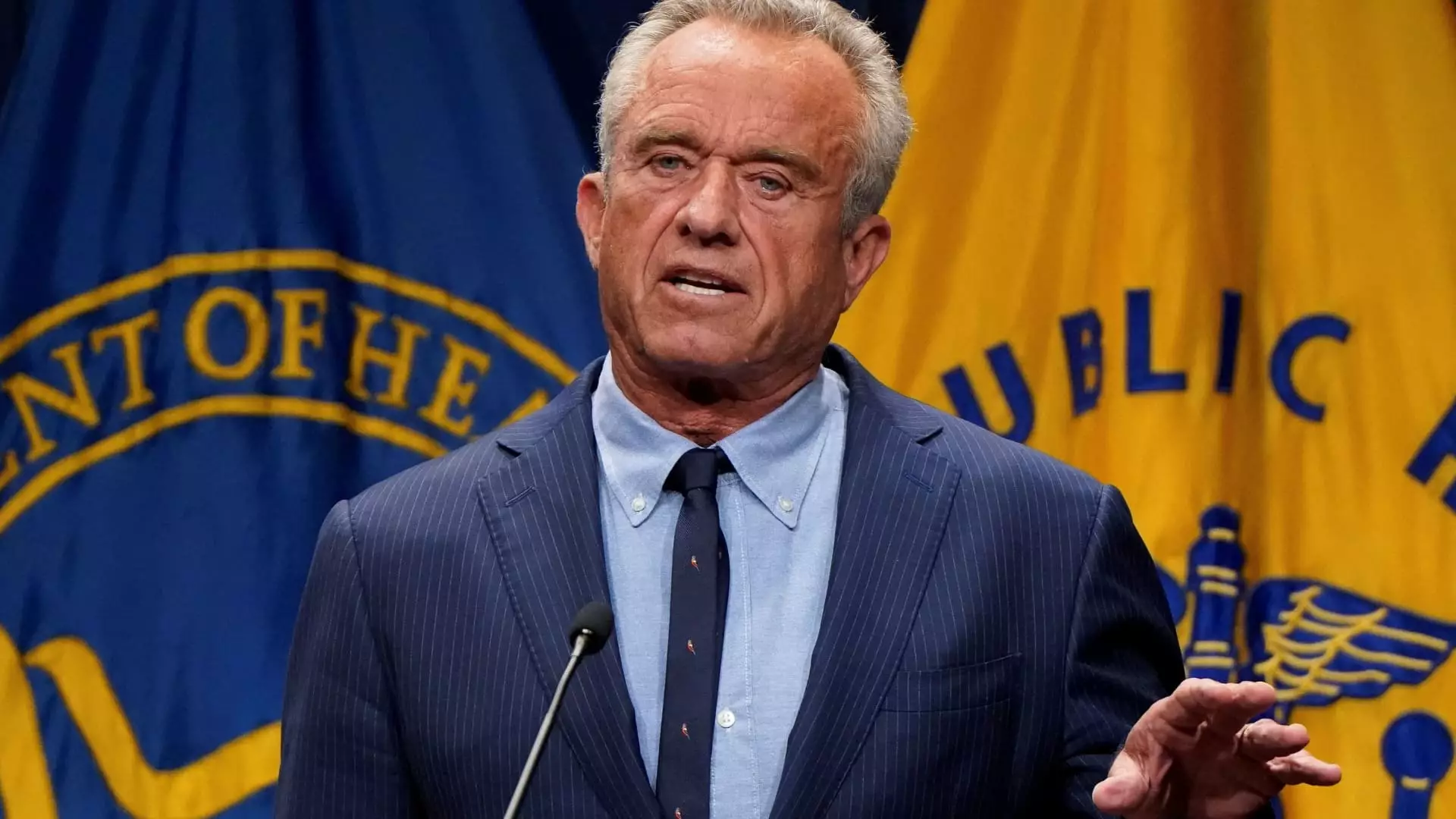The recent catastrophic decision by Health and Human Services Secretary Robert F. Kennedy Jr. to disband the Advisory Committee on Immunization Practices (ACIP) and replace them with a contingent of dubious vaccine critics has sent shockwaves across the healthcare community. This committee, essential for guiding vaccination practices in the United States, has had its reputation compromised at a time when public trust in vaccines is critically needed. By appointing several members who are already entrenched in the anti-vaccine movement, Kennedy has not only jeopardized scientific integrity but also posed a potential threat to public health.
The implications of this restructuring are profound and troubling. Members like Dr. Robert Malone, who has been vocally critical of vaccines despite playing a role in developing mRNA technology, exemplify a discord between established scientific methods and a burgeoning wave of skepticism. With the rise of misinformation and an erosion of faith in vaccinations, this selection threatens to amplify existing fears instead of quelling them.
The Dangers of Misinformation
Misinformation regarding vaccines is not merely an aesthetic issue; it can lead to dire public health crises. According to Lawrence Gostin, a public health law professor at Georgetown University, Kennedy’s decision constitutes “a national tragedy and a major threat to children’s health and lives.” This callous reshuffle disregards the overwhelming scientific evidence supporting vaccination as a safeguard against infectious diseases. Allowing anti-vaccine activists to have a seat at the table fundamentally undermines evidence-based medicine—the gold standard upon which effective health policies stand.
While Kennedy claims that his picks comprise “highly credentialed scientists and leading public health experts,” the presence of individuals who have openly challenged the safety of vaccines raises alarm bells. This suggests a prioritization of personal beliefs and ideological perspectives over scientific discourse and responsible health policy.
Expert Opinions? More Like Expert Conflicts
Public health officials and experts who were previously involved in ACIP have expressed despair over the direction the committee is set to take. Renowned pediatrician Dr. Paul Offit appalledly noted that the public will gain “less informed” recommendations due to the new appointments. His assertion paints a grim picture of what the future holds in terms of vaccination policies.
Kennedy’s selections seem almost calculated to ensure that vaccine skepticism becomes the new norm in public health discourse. Dr. Martin Kulldorff and Dr. Joseph Hibbeln, whose qualifications don’t exempt them from extremist views, pose a danger when their rhetoric resonates more loudly than the informed consensus of established scientists. Their ideas could mislead parents and caregivers, driving them away from critically needed vaccinations for their children.
A Divide in Medical Expertise
What’s most troubling isn’t just the new faces on the committee; it’s the fracture it represents within the medical community itself. The inclusion of figures like Vicky Pebsworth, a nurse associated with The National Vaccine Information Center—a group notorious for spreading vaccine misinformation—reveals how deeply entrenched divisiveness has become. Such allegiances compromise the integrity of the advice that ACIP gives.
Even Dr. Cody Meissner, who is recognized as one of the more qualified picks among the new appointees, has found himself at odds with the other appointees and their controversial views. While Meissner advocates for vaccinations as being “very safe and highly effective,” the voices that dominate this newly formed committee could drown out his moderate perspective.
The Broader Implications for Public Health
Kennedy’s overhaul raises questions about the future of immunization practices in the United States. The likelihood that this advisory committee will support science-backed practices seems grim. If the emerging recommendations from ACIP lean towards vaccine hesitancy, parents may be discouraged from vaccinating their children, potentially enabling outbreaks of diseases that were once under control.
The erosion of trust in public health authorities threatens not just individual wellbeing but also community health systems as a whole. A united front of expert consensus is vital to combat infectious disease and protect vulnerable populations. Each fractured viewpoint within these decision-making bodies only serves to amplify hesitancy.
Appointing anti-vaccine activists to a governmental advisory committee is not a mere misstep; it poses a colossal risk to the fundamental tenets of public health and safety in our society. As this situation unfolds, it raises pressing questions about who gets to define the narrative surrounding vaccinations, and ultimately, who suffers the consequences.

